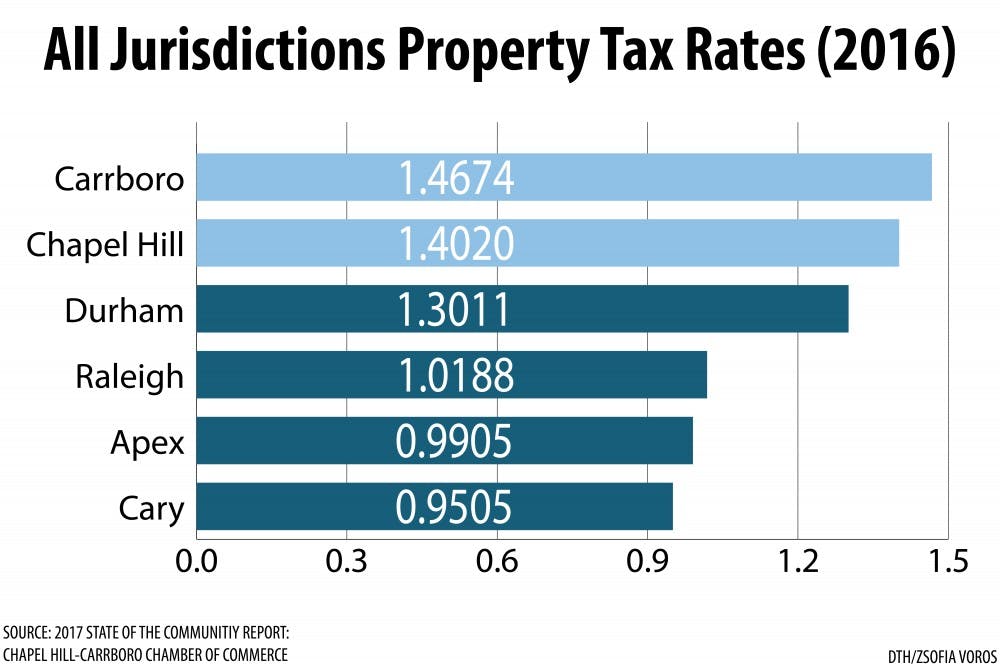“If you had a business in University Mall for example, University Mall would just pass along the tax bill to you, and you would pay it,” Nelson said. “On the macro level, the taxes in this community play a role in helping make it an expensive community to live in, and the taxes in this community make it a very expensive place to operate a business.”
Mayor Hemminger said commercial properties contribute more to the town’s bottom line than residential properties. This is because businesses pay property taxes but, unlike family units, do not use public services like schools and the parks and recreations system.
“When we say residential, we mean single-family owned homes,” she said. “When you say an apartment complex or a multi-family, they consider that a commercial unit because it’s actually paying income. Each one of the families is paying rent, so the owner of the building is actually making an income off bringing in revenue.”
Hemminger said this means although Chapel Hill’s tax base is over 80 percent residential, a more accurate figure would include these multi-family units — pushing the number higher.
“We’re really going for a balance of 60 percent residential and 40 percent commercial,” she said. “That’s a sustainable model for a city, and we’re way out of alignment.”
Aside from property taxes, which are projected to generate $39.8 million in the 2017-18 fiscal year, Hemminger said Chapel Hill receives revenue from the sales tax, fees of service and transfers from the state.
“Right now what we’ve been really trying to do is look at how we increase our commercial retail and office space in Chapel Hill,” Hemminger said. “Understanding that we have a lot of residential units, now we need to look at how we create those commercial units that actually provide jobs and sales tax income.”
Changing property values
Nathan Mills, managing partner at Mills Rentals, said his company owns all the properties it manages, meaning they are directly affected by a change in property taxes.
“I would like to see less of the burden put on homeowners in Orange County and Chapel Hill specifically, and more of it start to shift toward sort of a more even distribution of tax revenue, say from sales tax,” Mills said.
When Orange County reassesses property values, usually every four years, the state requires property taxes to change in a way that is revenue neutral. This means the more the average property values increase, the lower the property tax rate is.
“If, on average, all the properties went up 20 percent in Chapel Hill, they would have to take the rates down 20 percent,” Nelson said.
To get the day's news and headlines in your inbox each morning, sign up for our email newsletters.
When the average property value increases, not every owner is affected the same way.
For owners whose property value rises faster than the decrease in the property tax rate, they pay a larger sum in taxes. On the other hand, owners pay less if the property value falls or increases by a small amount relative to the decrease in property taxes.
“If there is a tax increase, the owner of the house would like to cover that tax increase with a rent increase,” Mills said. “Whenever we’re forced to figure out how to ask for more rents because of a tax increase, we try to focus on how can we provide more value to the renter.”
He said Mills Rentals tries to make higher rents worth it for customers through investing in good customer service, a personalized experience for renters and an attractive and well-functioning property.
“I think that we have a great town, and part of having a great town means that there’s lots of services and departments that are paid for by taxes, and so I understand the need for a strong tax revenue," Mills said.
city@dailytarheel.com




